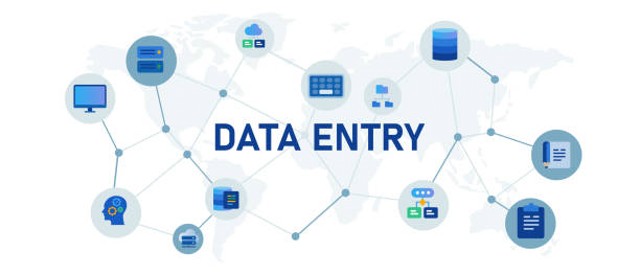Mobile app development has come a long way since the early days of smartphones. As technology continues to evolve, the future of mobile app development looks more exciting than ever.
In this article, we’ll explore the emerging trends and technologies shaping mobile app development’s future.
READ ALSO: How to improve your mobile app user engagement metrics
The Future of Mobile App Development: Emerging Trends and Technologies
1. 5G Technology
One of the most impactful developments in the world of mobile technology is the rollout of 5G networks. 5G promises faster download and upload speeds, lower latency, and more reliable connections. This will have a profound impact on mobile app development.
With 5G, developers will be able to create apps that can handle more data-intensive tasks, such as high-quality video streaming, real-time multiplayer gaming, and augmented reality (AR) experiences. 5G will also enable the rise of the Internet of Things (IoT), where more devices are connected to the Internet and can communicate with each other seamlessly.
2. Artificial Intelligence and Machine Learning
Artificial Intelligence (AI) and Machine Learning (ML) are rapidly becoming integral components of mobile app development. These technologies are transforming the way we interact with our devices and the apps we use.
AI-powered features, such as virtual assistants, chatbots, and personalized recommendations, are already enhancing the user experience. As AI and ML become more advanced, we can expect to see even more intelligent and adaptive mobile apps that can learn and evolve based on user behavior and preferences.
3. Augmented Reality and Virtual Reality
Augmented Reality (AR) and Virtual Reality (VR) are two emerging technologies that are poised to revolutionize the mobile app field. AR allows users to overlay digital content onto the physical world, creating immersive experiences. VR, on the other hand, immerses users in a completely digital environment.
With the increasing availability of affordable AR and VR hardware, such as smartphones and headsets, mobile app developers are exploring new ways to integrate these technologies into their apps. From gaming and entertainment to e-commerce and education, AR and VR are transforming the way we interact with our mobile devices.
READ ALSO: The Top 10 Programming Languages for Mobile App Development
4. Edge Computing
Edge computing is a distributed computing paradigm that brings data processing and storage closer to the devices and sensors that generate the data, rather than relying on a central cloud-based infrastructure.
In the context of mobile app development, edge computing can significantly improve the performance and responsiveness of apps by reducing latency and the need for constant internet connectivity. This is particularly important for applications that require real-time processing, such as augmented reality, autonomous vehicles, and industrial IoT.
As edge computing becomes more widespread, mobile app developers will be able to create more efficient and reliable apps that can operate even in areas with limited internet access.
5. Blockchain Technology
Blockchain, the technology behind cryptocurrencies, is also making its way into the mobile app development space. It offers a decentralized, secure, and transparent way of storing and exchanging data, and it has the potential to transform various industries, including finance, supply chain management, and data security.
In the context of mobile apps, blockchain can be used to create secure digital wallets, enable peer-to-peer transactions, and ensure the integrity of data stored on mobile devices. As blockchain technology matures, we can expect to see more mobile apps that leverage its unique features to provide enhanced security, privacy, and transparency.
6. Wearable Devices and the Internet of Things (IoT)
The rise of wearable devices, such as smartwatches and fitness trackers, has opened up new opportunities for mobile app developers. These devices can be integrated with mobile apps to provide seamless user experiences, allowing users to access information, receive notifications, and control various connected devices directly from their wrists.
Moreover, the Internet of Things (IoT) is transforming the way we interact with our environment. As more household appliances, vehicles, and other devices become connected to the internet, mobile app developers will need to create apps that can communicate with these IoT devices and provide a unified user experience.
7. Cross-Platform Development and Flutter
The fragmentation of mobile operating systems, with iOS and Android being the dominant players, has always posed a challenge for mobile app developers. To address this, the industry has seen the rise of cross-platform development frameworks, such as React Native and Flutter.
These frameworks allow developers to create a single codebase that can be deployed across multiple platforms, reducing development time and costs. Flutter, in particular, has gained significant traction in the mobile app development community due to its fast performance, rich widget library, and seamless integration with the Google ecosystem.
As cross-platform development continues to evolve, mobile app developers will be able to build more efficient and scalable apps that can reach a wider audience across different devices and platforms.
READ ALSO: Achieving security with mobile app security testing tools
8. Low-Code and No-Code Development
The traditional approach to mobile app development, which involves writing extensive code, can be time-consuming and resource-intensive. To address this, the industry has witnessed the emergence of low-code and no-code development platforms.
These platforms enable users with little to no coding experience to create mobile apps by leveraging visual programming tools, pre-built components, and drag-and-drop interfaces. This democratization of app development has the potential to empower a wider range of users, from business professionals to hobbyists, to create their mobile applications.
As low-code and no-code platforms continue to evolve, they will become more powerful and user-friendly, allowing for the creation of more sophisticated mobile apps without the need for extensive coding knowledge.
9. Continuous Integration and Continuous Deployment (CI/CD)
The pace of mobile app development has increased dramatically, with the need for frequent updates and new features. To keep up with this demand, the industry has embraced the principles of Continuous Integration (CI) and Continuous Deployment (CD).
CI/CD pipelines automate the process of building, testing, and deploying mobile apps, allowing developers to deliver updates and new features more efficiently and with fewer manual interventions. This also helps to ensure that the app remains stable and secure throughout its lifecycle.
As CI/CD practices become more widespread, mobile app development teams will be able to iterate and release updates at a faster pace, providing users with a more seamless and up-to-date experience.
10. Mobile App Security and Privacy
As mobile apps become more deeply integrated into our personal and professional lives, the need for security and privacy measures has become paramount. Cybersecurity threats, such as data breaches, malware, and unauthorized access, pose significant risks to mobile app users.
Mobile app developers are now placing a greater emphasis on implementing security best practices, such as encryption, secure data storage, and multi-factor authentication. Additionally, the increasing focus on user privacy, driven by regulations like the General Data Protection Regulation (GDPR) and the California Consumer Privacy Act (CCPA), is shaping the way mobile apps handle user data.
In the future, mobile app development will need to prioritize security and privacy as core design principles, ensuring that users can trust the apps they use with their sensitive information.
11. Personalization and Customization
As users become more demanding and their expectations for personalized experiences continue to rise, mobile app developers will need to focus on creating apps that can adapt to individual user preferences and behaviors.
Through the use of AI and machine learning, mobile apps will be able to offer personalized content, recommendations, and features based on a user’s past interactions, location, and other contextual data. This level of personalization will not only improve user engagement but also enhance the overall user experience.
Moreover, the ability to customize the look, feel, and functionality of mobile apps will become more important. Users will expect to have the option to tailor their app experience to their specific needs and preferences, further enhancing the overall value and appeal of the app.
12. Sustainable and Eco-Friendly Mobile App Development
As the world becomes more conscious of environmental sustainability, the mobile app development industry is also starting to embrace eco-friendly practices. This includes optimizing app performance to reduce energy consumption, designing apps with a focus on sustainability, and incorporating environmentally friendly features that encourage users to adopt more sustainable behaviors.
For example, mobile apps can be designed to track and reduce energy usage, promote the use of renewable energy sources, or enable users to make more sustainable lifestyle choices. As the demand for environmentally conscious technology continues to grow, mobile app developers will need to prioritize sustainability and environmental impact in their development processes.
13. Voice-Driven and Conversational Interfaces
The rise of smart speakers, virtual assistants, and voice-controlled devices has paved the way for the integration of voice-driven and conversational interfaces in mobile apps. Users are now more comfortable with using their voice to interact with their devices, and mobile app developers are responding by incorporating voice commands, natural language processing, and conversational AI into their apps.
These voice-driven interfaces can enhance the user experience by allowing hands-free interactions, and providing more natural and intuitive ways to access information and perform tasks. As voice technology continues to improve in accuracy and responsiveness, we can expect to see more mobile apps that seamlessly integrate voice-based interactions and natural language understanding.
READ ALSO: The Power of User-Generated Content: Know All
14. Emerging Mobile App Business Models
The traditional revenue models for mobile apps, such as paid downloads and in-app purchases, are evolving to accommodate new business strategies. As the mobile app field becomes more competitive, developers are exploring alternative monetization approaches, including subscription-based models, freemium models, and revenue-sharing agreements with platform providers.
Additionally, the integration of mobile apps with e-commerce, on-demand services, and other emerging business models is creating new opportunities for app developers to generate revenue and provide value to users. As the mobile app ecosystem continues to mature, we can expect to see more innovative and sustainable business models emerge, driving the future of mobile app development.
15. Regulatory Compliance and Data Governance
As mobile apps collect and handle a large amount of user data, the need for regulatory compliance and data governance practices has become crucial. Regulations such as the General Data Protection Regulation (GDPR) and the California Consumer Privacy Act (CCPA) have set new standards for how user data must be handled, and mobile app developers must ensure that their apps adhere to these regulations.
In the future, mobile app development will need to prioritize data privacy, security, and transparency. Developers will need to implement strong data governance policies, obtain user consent for data collection and usage, and provide users with more control over their personal information. Failure to comply with these regulations can result in significant fines and reputational damage for mobile app companies.
READ ALSO: Understanding and Implementing A/B Testing: Know All
Conclusion
The future of mobile app development is exciting and constantly evolving. From the integration of 5G technology and the rise of AI and machine learning to the growing prominence of augmented reality, mobile app development is poised for transformative changes.
As these emerging trends and technologies continue to shape the industry, mobile app developers must stay innovative and focused on providing users with seamless, personalized, and secure experiences. By embracing these advancements, the mobile app development community can create a future where mobile apps become even more intelligent, and transformative in our daily lives.







